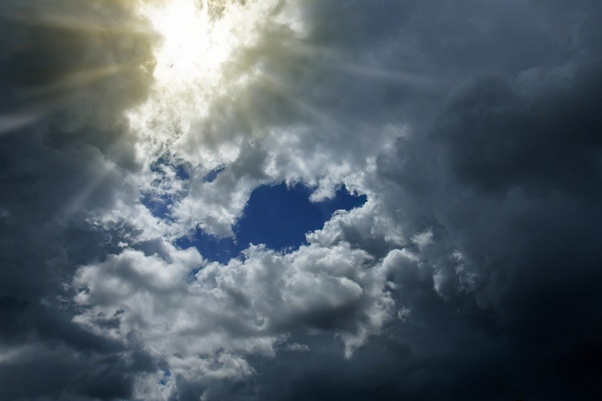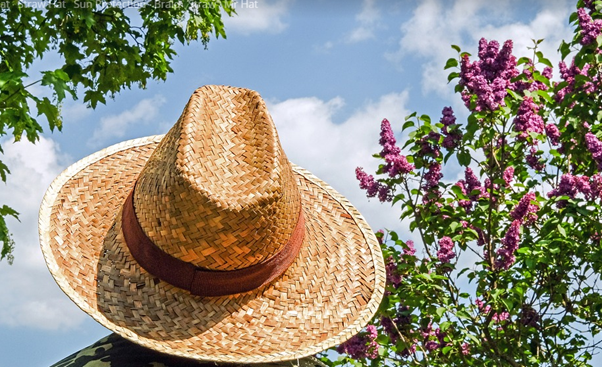
We often refer to the sun when talking about happy times. Saying that sunny days make us feel good or telling someone you hope the sun shines for them.
Comments about enjoying the sun might not always be appropriate, especially for people affected by skin cancer. We should be mindful of this when we're talking to others. We should also remember that sun awareness is a really important issue for us all.
Sun exposure can put you at risk of sunburn, or skin damage. Ultraviolet (UV) light from the sun is the main cause of most skin cancers. UV light damages the DNA (genetic material) in our skin cells and can cause skin cancer.
In this Community News blog, we'll feature conversations from our skin cancer and melanoma forums. You'd be very welcome to join in if you have your own tips or questions. We'll also be talking about sun protection and signposting to Macmillan information pages.
Meet our Melanoma forum members
Melanoma forum members have been discussing some of the challenges they live with.
"I hate people referring to it being sunny as a good thing, as I'd much prefer it to be cloudy and cool in the summer, but then I always have but even more so now."
"I don't know about you guys but I suffer massively from depression if I can’t get my daily dose of vitamin D and being outside is a huge part of my life so coming to terms with this all has been a massive challenge!"
You can start your own conversation in the Melanoma forum if you'd like to join the conversation. Please do share your own thoughts, tips or ask questions.
Questions from our skin cancer group
The members of the Community skin cancer group have been answering questions about protecting skin from the sun.
"I wonder if anyone had any good recommendations for sun protection? I already wear factor 50, the face ones always give me spots. I've always thought its better to have spots than skin cancer but does anyone use something that doesn't irritate skin so much? I've seen a factor 130 online- is that worth the extra cost? I'm not a sun worshipper so unlikely to out for long anyway. I never wear hats and all of the UV protection ones I've seen are really ugly- where can I get a decent hat that's also fashionable? Has anyone found any clothes that are UV protecting but also don't make you too hot? I hate being hot."
If you're interested to hear how members of the Community answered these questions, you can find the thread here in the skin cancer forum. If you have tips or questions of your own, we’d encourage you to join in with the thread, or start your own discussion.

How do I protect my skin? Top tips from Macmillan
Macmillan Cancer Support provides high quality, expertly developed information about cancer. It's also worth taking a look at our advice, which will help you protect your skin against sunburn and reduce your risk of skin cancer:
If you've already been through skin cancer treatment, you can find even more detailed advice to help prevent further skin cancer.
Can I get suncream on prescription?
"...are sun creams available on prescription for people who have had skin cancer diagnosis?"
Member 'Dekpw1' came to the Community asking about getting sun cream on prescription. Community Champion 'latchbrook' used personal experience and knowledge from their time on the Community to answer the question. You can find the answer and join in the conversation here.
Find cancer information and further support.
There's lots of useful information about skin cancer on Macmillan's main website. Click here for our pages about Melanoma (also called malignant melanoma). Melanoma is a cancer that usually starts in the skin. It can start in a mole or in normal-looking skin. The main risk factor for developing melanoma is exposure to UV radiation. This can be through natural sunlight or the artificial light used in 'tanning beds'.
Are you looking for more information about other types of skin cancer? Macmillan produce an information booklet called ‘Understanding skin cancer’. This booklet has information about basal cell carcinomas (BCCs) or squamous cell carcinomas (SCCs). You can have a read or download a copy here.
Too much sun or childhood sunburn can put you at increased risk for developing BCCs and SCCs. It is likely that skin damage from UV light during childhood does not show up until many years later. People with black skin or darker skin have a lower risk of getting BCCs and SCCs. This is because they have a pigment in their skin called melanin, which gives them protection. Actinic keratosis (AK), also called solar keratosis, is a crusty skin growth caused by damage from exposure to UV light. If left untreated for many years, AK may sometimes develop into SCC.
If you notice anything unusual on your skin that does not go away after four weeks, show it to your doctor. It might help to take a photograph of anything unusual so you can check for any changes. Remember that there are many other skin conditions that are not cancer, especially in older people. It can be more difficult to notice changes if you have darker skin. This is because symptoms of skin cancer can be less obvious than those for people with paler skin. If you notice any changes, or develop a sore that does not heal, speak to your doctor.
Please do look after your skin throughout the warmer months. We also remind you to be mindful when talking about the sun. Some people may have to take extra measures to protect themselves from UV rays. We are sure they will really appreciate your understanding and help keeping safe.
To read more about signs and symptoms of skin cancer, check out Meg's blog here.
If you have any comments or questions about this blog, you can reply in the comment section below. You can also email the team on community@macmillan.org.uk
Whatever cancer throws your way, we’re right there with you.
We’re here to provide physical, financial and emotional support.
© Macmillan Cancer Support 2026 © Macmillan Cancer Support, registered charity in England and Wales (261017), Scotland (SC039907) and the Isle of Man (604). Also operating in Northern Ireland. A company limited by guarantee, registered in England and Wales company number 2400969. Isle of Man company number 4694F. Registered office: 3rd Floor, Bronze Building, The Forge, 105 Sumner Street, London, SE1 9HZ. VAT no: 668265007